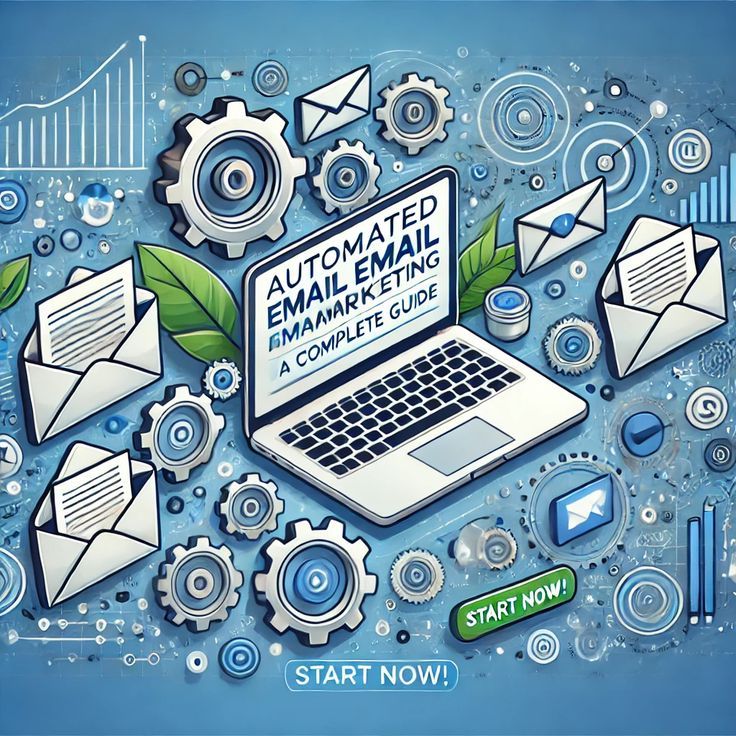
Marketing automation is no longer a fad; it is a necessity in the competitive digital market today, where businesses look for ways of streamlining processes to improve on productivity and, eventually, be able to scale the marketing effort. Be in any corner of the world, adoption of the right tools will enable you to move from traditional marketing strategies to smarter AI-driven strategies that deliver results.
In this post I will show you what I consider the best 5 marketing automation tools that have made a huge difference for my strategy of digital marketing. Through automation of key tasks, I have been able to enhance efficiency and maximize ROI. Let’s Dive in!
Table of Contents
- What Is Marketing Automation?
- Why You Need Marketing Automation Tools
- Top 5 Marketing Automation Tools You Should Know About
- HubSpot Marketing Hub
- Mailchimp
- ActiveCampaign
- Marketo (Adobe)
- Drip
- Pro Tips for Using Marketing Automation Tools
- Conclusion
What Is Marketing Automation?
In a general sense, marketing automation relates to the use of software in automating repetitive marketing-related tasks, such as emails and posts on social media and even paid ads. Such tools save a lot of time and resources because they trigger action automatically based on customers’ behaviors, thus allowing you to create highly personalized experiences without much manual intervention. Artificial intelligence in marketing is highly involved with marketing automation through consumer behavior prediction as well as improving the outcome of campaigns.
Why You Need Marketing Automation Tools
Traditional marketing often involves a lot of manual processes. In contrast, automation for marketing tools allow you to:
- Save time on repetitive tasks.
- Scale your efforts without adding resources.
- Improve customer targeting through personalized content.
- Increase conversions by delivering timely messages.
- Analyze campaign performance using real-time data.
I’ve personally used marketing automation tools for over 6 months in my digital marketing journey, and they’ve drastically transformed the way we engage with our audience and drive results.
Top 5 Marketing Automation Tools You Should Know About
1. HubSpot Marketing Hub
Best for: All-in-one marketing automation
HubSpot is a leading name in the marketing automation world. It’s an all-in-one platform that combines email marketing, lead generation, content management, and analytics.
Key Features:
- Lead Generation: Forms, landing pages, and pop-ups for lead capture.
- Email Automation: Automate email sequences based on actions taken by customers.
- CRM Integration: With their CRM HubSpot, tracks everything with ease.
- Analytics & Reporting: Track your campaign performance effortlessly.
Benefits:
- Easy-to-use interface.
- Excellent customer support.
- Scalable solution for businesses of all sizes.
2. Mailchimp
Best for: Email marketing automation for small businesses
Mailchimp is widely known for its simplicity and effectiveness in email marketing. It’s perfect for SMBs looking for an affordable tool to automate email campaigns.
Key Features:
- Email Campaigns: Automate emails based on user activity and segmentation.
- Audience Segmentation: Target specific groups for more personalized content.
- Analytics: Detailed reports to measure email performance.
Benefits:
- Great for beginners.
- Free plan available.
- Strong integration with various e-commerce platforms.
3. ActiveCampaign
Best for: Advanced email marketing and CRM integration
ActiveCampaign is perfect for businesses that need advanced automation workflows and a CRM system to nurture leads and drive sales.
Key Features:
- Advanced Automation Workflows: Set up complex automations based on customer behavior.
- CRM Integration: Manage customer relationships directly within the tool.
- Segmentation: Highly detailed customer profiles for precise targeting.
Benefits:
- Robust segmentation and personalization options.
- Excellent support and tutorials.
- Scalable for growing businesses.
4. Marketo (Adobe)
Best for: Enterprise-level automation
Marketo, now part of Adobe, is an enterprise-level platform for businesses that need complex automation workflows, detailed reporting, and cross-channel marketing.
Key Features:
- Lead Nurturing: Automate multi-step campaigns to nurture prospects.
- A/B Testing: Test email content, landing pages, and more to optimize performance.
- Reporting and Analytics: Deep reporting tools for performance measurement.
Benefits:
- Powerful and flexible features.
- Great for large teams and enterprises.
- Seamless integration with Salesforce.
5. Drip
Best for: E-commerce automation
Drip is ideal for e-commerce businesses, offering automation features tailored to product sales and customer retention.
Key Features:
- E-commerce Automation: Automate cart abandonment emails, follow-ups, and upsell offers.
- Customer Segmentation: Create dynamic segments based on purchase behavior.
- Integrations: Works well with Shopify, WooCommerce, and other platforms.
Benefits:
- Specialized for e-commerce.
- Highly customizable email sequences.
- Excellent customer service.
Pro Tips for Using Marketing Automation Tools
- Start Small, Scale Gradually: Begin with essential automation features, like email campaigns, before scaling to more complex workflows.
- Leverage AI: Many automation tools integrate artificial intelligence to optimize customer targeting—make sure you’re using this feature.
- Measure and Optimize: Regularly monitor campaign performance and adjust your strategies for better results.
- Segment Your Audience: Personalization is key. Use segmentation to send the right message to the right person at the right time.
- Integrate with Other Tools: Make sure your automation tool integrates with other platforms like CRM, e-commerce systems, and analytics tools.
Conclusion
Incorporating marketing automation into your strategy is essential for businesses looking to stay competitive in today’s digital landscape. The tools listed above—from HubSpot to Drip—are some of the best options to automate your marketing tasks and improve ROI.
Remember, automation for marketing isn’t just about making processes easier; it’s about using data-driven insights to deliver personalized experiences that resonate with your audience. Whether you’re moving from traditional marketing or diving into AI-powered solutions, these tools will help you scale your marketing efforts and achieve your goals efficiently.
Ready to automate your marketing? Try one of these tools today and see the difference it makes in your campaigns!
